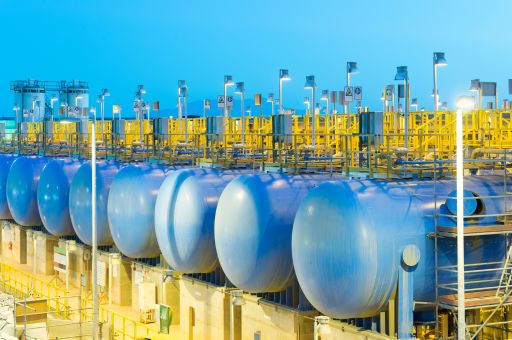Each infrastructure will have a design adapted to the needs and resources available and will require an investment of 3.5 million euros for the study of the three facilities.
The balance between water supply and the recovery of aquifers in the most critical areas of the Balearic Islands continues to be a strategic priority. In this context, the Councillor for the Sea and Water Cycle, Juan Manuel Lafuente, announced this morning that the preliminary studies for three new desalination plants in Mallorca, Menorca and Eivissa have been awarded. The announcement was made at a ceremony held at the Regional Ministry’s headquarters, where he was accompanied by the director general of Water Resources, Joan Calafat, and the manager of Abaqua, Emeterio Moles.
TDB keeps you informed. Follow us on: Facebook, Twitter and Instagram
First step to start up the projects for the new desalination plants in Mallorca, Menorca and Eivissa
This initiative, promoted by the Regional Ministry of the Sea and the Water Cycle and the Directorate General of Water Resources, aims to evaluate solutions to reinforce supply in areas with water quality and quantity problems, such as the southeast of Mallorca, the east of Menorca and the south of Eivissa. The sizing of these infrastructures will be determined by studies carried out by the Directorate-General for Water Resources, the body in charge of resource planning in the Balearic Islands.
The approved dossier provides for technical and environmental studies to assess the most appropriate location for these infrastructures, the seawater collection system, brine rejection and connection to the supply networks. In the case of Mallorca and Eivissa, their integration into the existing networks is envisaged, while in Menorca the implementation of a new one will be assessed.
Beyond reinforcing the water supply, this study focuses on the recovery of aquifers, a key objective within the current hydraulic planning. Recovery is not limited to water quality, but also to quantity, ensuring a balance between extractions and natural recharge to curb saline intrusion.
‘The balance between water consumption and the recovery of aquifers is a priority for this government,’ Lafuente stressed. ‘With this study, we are taking the first step towards defining the best solutions, adapted to each island, to guarantee a quality supply and reduce the pressure on our natural resources’.
Impact on each island
The implementation of these infrastructures is particularly relevant given the scarcity of reserves, the lack of rainfall and the worsening quality of groundwater for human supply. In general terms, the following impact is expected on each island:
Mallorca: The aim is to guarantee the portability of the supply in the Levante area and Es Pla, where the quality of the water has forced many municipalities to decree non-compliance with parameters and unfitness for human consumption. Priority will be given to addressing the shortage of resources in the Llevant de Mallorca, especially in the area from Ses Salines to Artà, in addition to the municipalities of the Pla de Mallorca.
Menorca: The installation will be aimed at improving the quality of supply in Maó, Sant Lluís and Es Castell, mainly, ensuring the recovery of groundwater and guaranteeing supply.
Eivissa: Given that underground reserves are at a worrying minimum, the new plant will meet current demand with non-conventional resources, reducing extractions to a minimum. It will also reduce the overload of the three current plants, which work at an average of 75% of their capacity throughout the year, reaching up to 110% in more than five months. The new installation, planned for the municipality of Sant Josep, will be located near the main centres of consumption to minimise energy expenditure in transporting water.
The total tender budget for this project is 3.5 million euros (VAT included), 2.9 million without VAT, distributed in three lots corresponding to each desalination plant. It will be financed through the ITS 24-25 call for tenders.
With this first step, the Regional Ministry of the Sea and the Water Cycle and the Directorate General for Water Resources reaffirm their commitment to efficient and sustainable water management in the Balearic Islands. This study will make it possible to evaluate the most appropriate solutions to guarantee the supply of water to the population and reduce the pressure on aquifers, ensuring the availability of the resource in the future.
